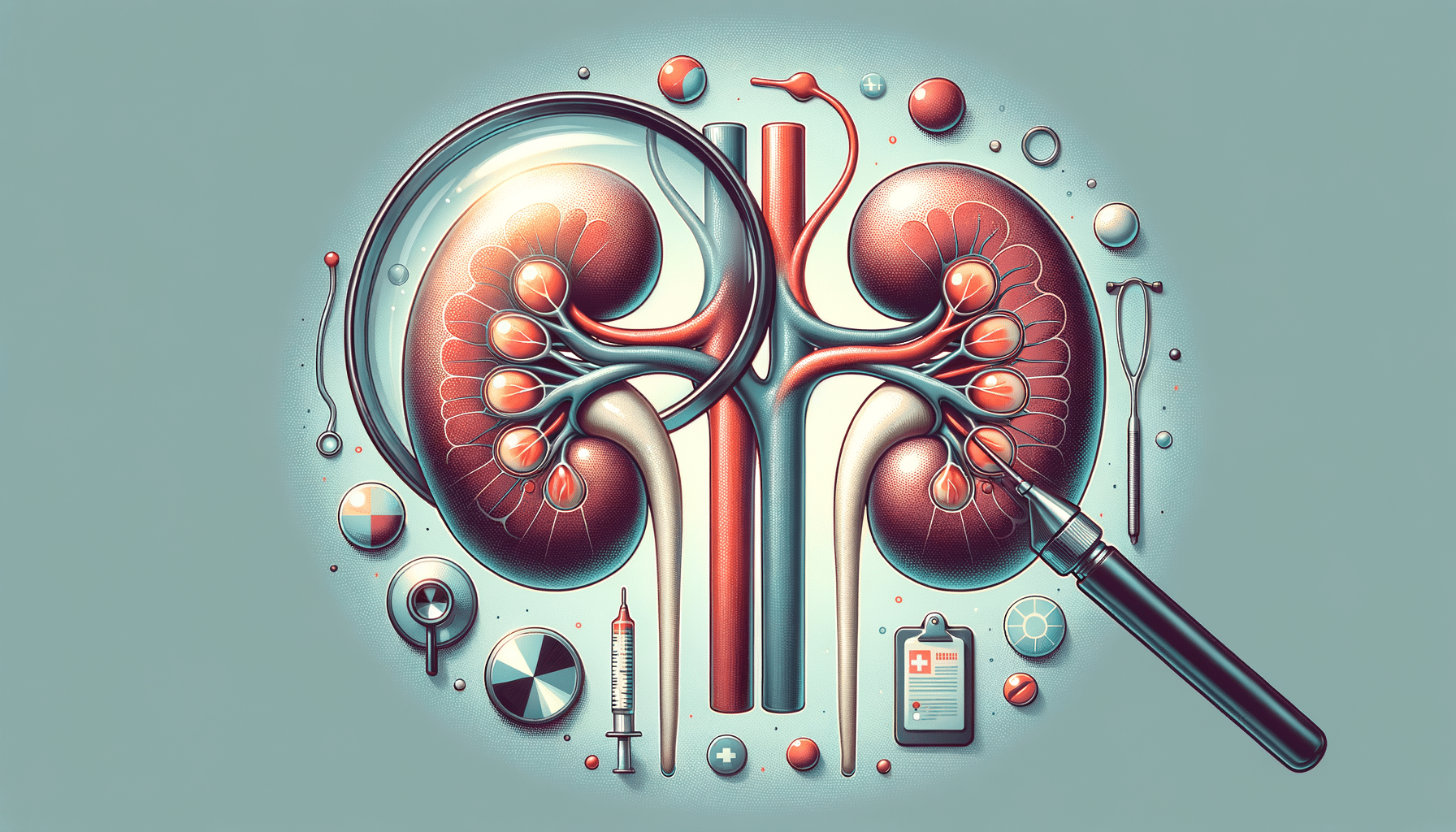
The Importance of Early Detection in Treating Chronic Kidney Disease
Understanding Chronic Kidney Disease
Chronic kidney disease (CKD) is a progressive condition that affects the kidneys’ ability to filter waste and excess fluids from the blood. This disease often develops silently, with symptoms appearing only after significant damage has occurred. Understanding the nature of CKD is crucial for early detection and management. The kidneys play a vital role in maintaining overall health by filtering blood, regulating blood pressure, and balancing electrolytes. When kidney function declines, it can lead to a buildup of waste products in the body, resulting in various health issues.
CKD can be caused by several factors, including diabetes, hypertension, and glomerulonephritis. It is classified into five stages, with Stage 1 being the mildest and Stage 5 indicating kidney failure. Early detection of CKD can prevent progression to more severe stages and reduce the risk of complications such as cardiovascular disease. Regular check-ups and monitoring of kidney function through blood and urine tests are essential for those at risk.
Early detection not only helps in halting the progression of the disease but also allows for lifestyle adjustments and treatments that can improve quality of life. By understanding CKD’s progression and risk factors, individuals can take proactive steps to protect their kidney health.
Early Signs and Symptoms of Kidney Disease
Recognizing the early signs of kidney disease can be challenging, as symptoms often do not appear until the kidneys are significantly impaired. However, being aware of subtle changes in the body can lead to early diagnosis and better outcomes. Some common early signs include:
- Fatigue and weakness: As kidney function declines, the body may produce less erythropoietin, a hormone that stimulates red blood cell production, leading to anemia and fatigue.
- Swelling in the feet and ankles: Reduced kidney function can cause fluid retention, resulting in swelling, particularly in the lower extremities.
- Changes in urination: Increased frequency, foamy urine, or blood in the urine can be indicators of kidney issues.
- High blood pressure: The kidneys help regulate blood pressure, and impaired function can lead to hypertension.
It is important to note that these symptoms can also be associated with other health conditions. Therefore, a thorough evaluation by a healthcare professional is necessary to determine the underlying cause. Early detection of kidney disease through awareness of these signs can lead to timely intervention and management.
The Role of Lifestyle in Managing Kidney Health
Adopting a healthy lifestyle plays a significant role in managing kidney health and preventing the progression of kidney disease. Diet, exercise, and avoiding harmful substances are crucial components of maintaining kidney function. A balanced diet low in sodium, saturated fats, and cholesterol can help manage blood pressure and reduce the strain on the kidneys. Consuming plenty of fruits, vegetables, and whole grains provides essential nutrients and antioxidants that support overall health.
Regular physical activity helps maintain a healthy weight, reduce blood pressure, and improve cardiovascular health, all of which are beneficial for kidney function. Avoiding tobacco and limiting alcohol consumption can also prevent further kidney damage and improve overall well-being.
In addition to lifestyle changes, individuals with kidney disease should work closely with healthcare providers to monitor kidney function and manage any underlying conditions such as diabetes or hypertension. Medication adherence and regular check-ups are essential components of a comprehensive approach to kidney health management.
Diagnostic Tests and Monitoring for Kidney Disease
Early detection of kidney disease relies heavily on diagnostic tests and regular monitoring. These tests provide valuable information about kidney function and help identify any abnormalities early on. Common diagnostic tests include:
- Blood tests: Measuring levels of creatinine and blood urea nitrogen (BUN) provides insight into kidney function. Elevated levels may indicate impaired kidney function.
- Urine tests: Checking for protein or blood in the urine can reveal signs of kidney damage. A urine albumin-to-creatinine ratio test can also assess kidney health.
- Imaging tests: Ultrasound or CT scans can visualize the kidneys and identify any structural abnormalities or obstructions.
- Biopsy: In some cases, a kidney biopsy may be necessary to determine the underlying cause of kidney disease.
Regular monitoring of kidney function allows for timely adjustments to treatment plans and lifestyle modifications. Early intervention can slow the progression of kidney disease and improve long-term outcomes.
Conclusion: The Importance of Early Detection
Chronic kidney disease is a silent but serious condition that requires early detection and proactive management. Recognizing the early signs and symptoms, adopting a healthy lifestyle, and undergoing regular diagnostic tests are essential steps in preserving kidney health. Early intervention can significantly improve quality of life and reduce the risk of complications associated with advanced kidney disease.
By staying informed and vigilant, individuals can take control of their kidney health and work towards a healthier future. Collaborating with healthcare professionals and making informed decisions about lifestyle choices can make a substantial difference in managing this chronic condition.


